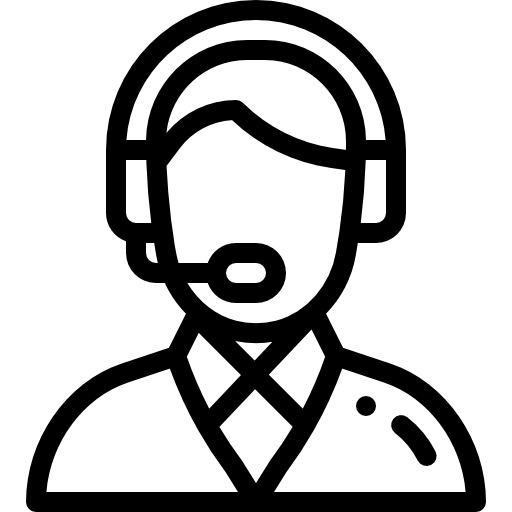
10 Tips for Choosing the Right Horse
of reading - words
Buying a horse is always an exciting moment to experience. It was the beginning of a great friendship that would last for years. How to choose your horse? It can quickly become a complicated exercise when you don't have much experience with horses. To make your life easier, here are 10 expert tips for choosing the right horse! 🐴
Tip 1: Choose the right horse size
In choosing the right height...
First of all, there are no precise rules regarding the correct choice of horse height. The main thing to consider is not to be too big for the horse and cause injury while riding, which we will cover in more detail below. It's a matter of personal preference but some people prefer to ride ponies, which are less than 140cm tall. Other people prefer taller horses, which can be 160 to 190 cm tall.
Remember, the further you go from the ground, the higher you will fall if you fall. Additionally, it can be very difficult for a smaller person toride a larger horse. This can be particularly problematic if you are in a field without a mounting block.
...and the right weight
Studies like this have shown that horses are most comfortable when carrying no more than 15-20% of their body weight. Once you exceed 25% or more, horses begin to show significant signs of physical stress and fatigue. When you start the search for a horse, calculate your weight by adding that of your riding equipment, which should not be neglected. Keep this figure handy so you can compare it to the total weight of the horse you are considering purchasing.
It is important to note that the 15-20% rule applies to horses in good health. If the horse you are considering is very young or very old, you should exercise more caution and take less risk at this level. ⚖️
Tip 2: Choose the right breed of horse
With over 350 horse and pony breeds in the world today, there are many possibilities for your horse. Which breed of horse to choose? Each breed has its advantages and disadvantages, the perfect horse does not exist and you will have to find which horse is made for you! You must also know what discipline you would like to practice with your horse because certain breeds are easier to work with in certain disciplines. Here are some examples of common horses in France:
Contrary to what its name indicates, the Anglo-Arab Horse originates from France. He is renowned for being lively and muscular, his courage and intelligence also allows him to be versatile, which is why he is very popular in many disciplines such as endurance, dressage, show jumping and eventing.
Reputed to be gentle and sociable, the Bard comes from North Africa. He also has a muscular body with a fine head and can also be versatile in disciplines such as endurance, dressage or even show jumping. Another advantage and not the least is its price which is reasonable when you know what the purchase of a new Horse involves financially.
Her pretty black dress earned her the nickname “black pearl”. Originally from Holland, he is considered a prestigious horse with an elegance and charisma that would make his stable companions jealous. This is also why he is appreciated in cinema and the world of entertainment. His good memory and his sensitivity make him a formidable contender in dressage competitions.
Besides, you can find this elegance of the Friesian in our store in the form of a Horse Canvas or a Duvet Cover Horse.
The Thoroughbred is probably the best-known and most widespread breed in the world, particularly in galloping races on racecourses. His delicate character and strong personality give riders a hard time. It is therefore not suitable for beginners. With a little work, he can be very good in many disciplines such as show jumping or CCE for example.
The Arabian horse is one of the oldest breeds and is the origin of most other horse breeds. He is considered one of the most enduring horses in the world but he requires great attention due to his sensitivity and nervousness. This is why it is recommended for experienced riders and excels in endurance, racing and horseback riding.
This horse, resulting from various crossbreeding, is characterized by its strength, robustness and large size. His sensitive and docile character facilitates the relationship he can have with his rider. His favorite disciplines are CSO and CCE.
Tip 3: Choose a horse that suits your personality
Although there are horse breeds known for their calm personalities and others who are more energetic, there are still personality variations within each horse breed. For this reason, you should exercise caution when purchasing a horse to ensure you are matched with a horse that suits your personality. 💑

It can be difficult to recognize a horse's personality after only seeing it two or three times. For this reason, do not hesitate to ask the seller questions about their temperament. If possible, ask several people who have been in contact with the horse to get an honest opinion.
If you are not able to get a lot of information about their personality, you can always ask for a trial period with the horse to see if they are a good fit for you.
Remember, however, that no matter which horse you choose, you may feel uncomfortable at the beginning of your new relationship with another horse. It takes time and commitment to create a strong bond with a horse, so you shouldn't give up or sell a horse at the first sign of trouble. You will also become a better rider in the long term by correcting the faults.
You can choose one of our magnificent Bijoux Horses in our store to show your attachment to horses.

Tip 4: Choose a horse that matches your experience level
One of the well-known rules in equestrian communities is that you should never choose a beginner horse with a beginner rider. You may become demotivated at first because the work will be more difficult. A beginner rider should always start with a horse that has decent experience.
As a new rider, it takes time to master the basics of riding. Choosing a beginner horse if you are too can result in incorrect techniques and bad habits for both parties involved. When choosing a horse, be sure to clearly indicate your experience level and that you would like a horse suitable for your experience level.
Tip 5: Choose a horse that suits your riding goals
When you begin the search for your horse, you should take the time to think about your long-term goals. If your goal is to compete in high-level competitions or equestrian sports, you should choose a horse in the prime of life with many years of riding ahead of him. You must also ensure that their physique is suitable for the physical demands you will impose on them. 🏆

If your goal is to do a lot of trail riding and pleasure riding, then you don't necessarily need a horse that is built for intense competition. Instead, your primary concern should be finding a reliable, balanced horse that can endure carrying additional equipment over long distances.
If you're not yet sure what direction you'd like to take your riding, acquiring a versatile horse breed might be the right option for you.
Tip 6: Bring someone more experienced with you when choosing a horse
If you are ready to take your horse, we advise you to find someone who has expertise in horses as this can put your mind at ease. 👩👧👦
If you don't have many contacts in the horse world, but you have chosen your horse, you can try calling the owner to ask if he or someone he knows would be willing to come help you with your search. Having a more experienced second opinion can help relieve the stress caused by the choice you need to make.
Spend time discussing your goals and abilities with this person you plan to take with you so they have an idea of the type of horse that might be right for you. When it comes time to test the horse, you can let this person ride first so they can get a feel for their temperament and how they respond to commands from a confident and experienced rider.

Tip 7: Prepare questions in advance before choosing a horse
When looking for a horse, be prepared to provide a list of questions to ask the current owner. Writing down your questions in advance will help you be thorough and prevent you from missing something important. Here are the questions you should ask yourself when buying a horse. 🤔
Why are you selling the horse?
The answer to this question alone can give you a lot of information. Are they selling the horse because of behavioral problems, medical issues, or simply to reduce their own personal expenses? Not everyone you ask this question will be honest, so don't be too naive.
How old is the horse?
It is important that young horses are not ridden until their bodies are fully developed. Riding an underdeveloped horse can cause back and leg problems for the horse, so this rule should not be taken lightly. The horse's body is not fully developed until age 6.
Some people suggest that you can start riding horses as early as age 2 or 3, but experts suggest that waiting until you are at least 4 or 5 years old is a much better option.
You should also ask yourself whether a horse is too old for your riding goals. Although all horses age differently, if you plan to compete and ride the horse you are purchasing for any length of time, it is recommended that you find a horse that is approximately 3 or 4 years old. Healthy horses live on average 25 to 33 years.
What is the horse's medical history and do they have any special requirements?
The purpose of this question is to find out if there could be any complications in the near future for the horse. If they have a long history of medical problems, it is likely that there will be other problems in the future. Make sure the horse has been regularly vaccinated, its teeth have been floated and its feet are in good condition.
What is their temperament and are they consistent?
A horse that seems calm one day, might be full of energy the next. Ask about their temperament to help you determine if they are generally calm and easy to control, or if they have more energy. Depending on your riding goals, it may be beneficial to have a horse with more energy because once trained, he will do well competing in demanding activities.
Are they well trained and have they been ridden frequently?
If you are not an experienced rider, this question is very important. You should know how much training the horse has received and how easy it is for a beginner to ride. Riding a well-trained horse as a beginning rider will help improve your confidence as a rider and prepare you to work with less-trained horses in the future.
The frequency with which a horse has been ridden is also important. Even if the horse has had a lot of training, if he hasn't been ridden very often, he will likely have bad habits that will need to be corrected when he starts riding regularly again.
How does the horse ride with other horses?
A horse can ride in an open field, but it cannot ride in the company of other horses. If the horse is prone to charging or kicking other horses around him while riding, it is important to be aware of this.
Is the horse registered?
If you are looking for a particular breed of horse, or if you are interested in breeding the horse, it is best to find a horse that is registered. There are several breed associations with which horse owners can register their horse.
While these questions may not be all you should ask when choosing a horse, they should hopefully get you off to a good start.
Tip 8: Take a test ride when choosing a horse
Taking a test ride on a new horse can be scary, but it is a necessary step in the buying process. If possible, ride the horse with someone experienced first to get a feel for its condition.
Focus on the overall feeling and how easily the horse will adapt to your specific training needs. Waiting until you have purchased a horse before riding it can put you in a very stressful situation, so it is best to try it out before committing. 🎬
Tip 9: Have your chosen horse inspected by a veterinarian
Even if you feel like the horse's owner has given you detailed information about their medical history, it is always prudent to have your horse inspected by a qualified veterinarian before any purchase.

They will be able to tell you if the horse is in good physical condition and if it could have any medical problems in the near future.
Tip 10: Take your time choosing a horse
Buying a horse is not a decision to take lightly, horses are a lot of fun, but they are also a lot of work! Do your research to find the horse that's right for you. Even if you find a horse you like at the beginning of your search, we recommend that you view the other listings for a comparison. 🔎
It may all seem complicated, but it will be worth it in the long run when you can enjoy countless hours with your new traveling companion!









Tifa
Merci, très bon conseil ♥️♥️♥️
Sara
Mdr je regarde ça alors que j’ai pas les moyens de m’en acheter un
Wendy ❤💜❤
Très bien pour des conse
Roger Dumas
Très instructif et très bien documenté! Merci
Rossius
Merci